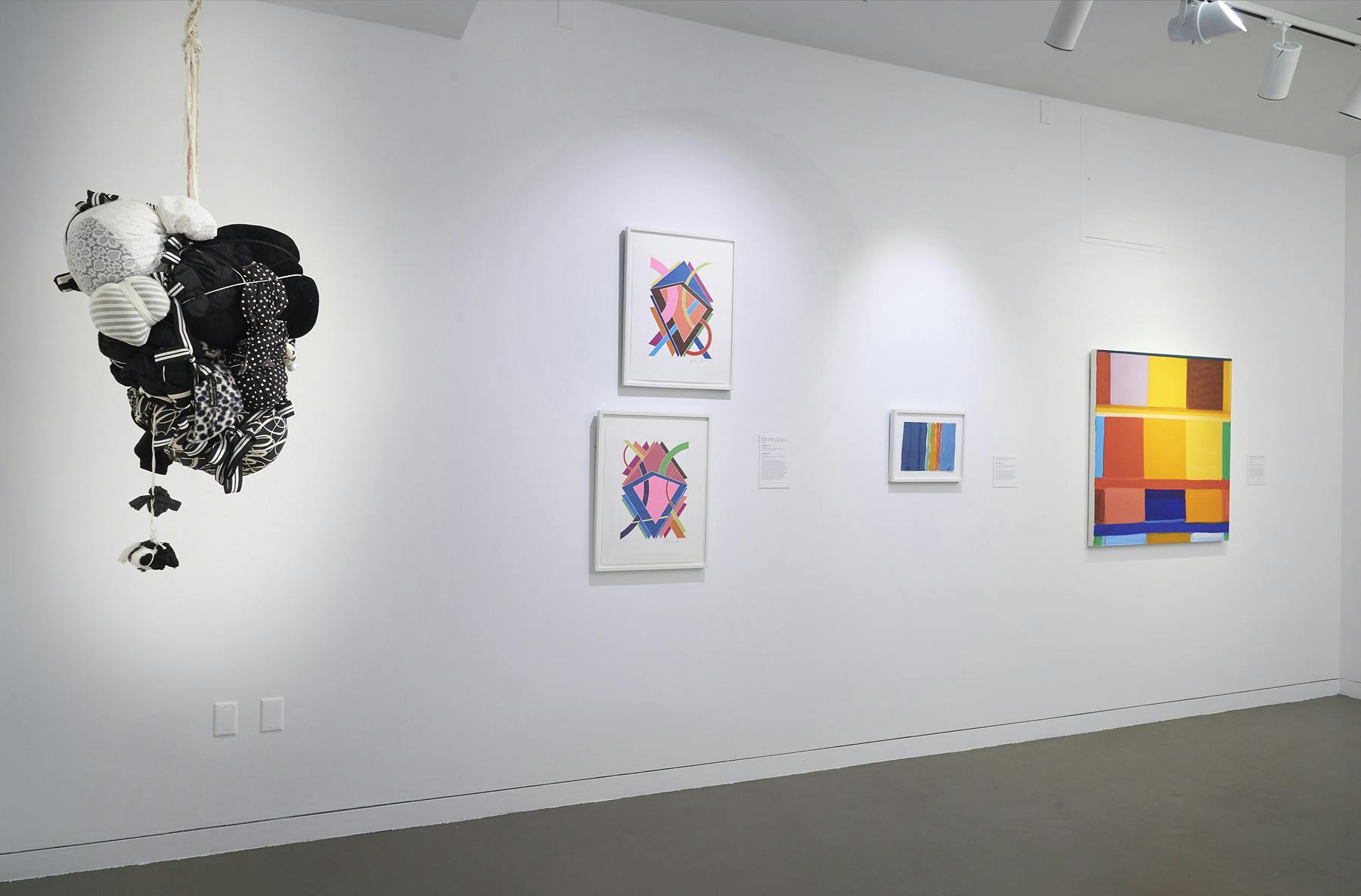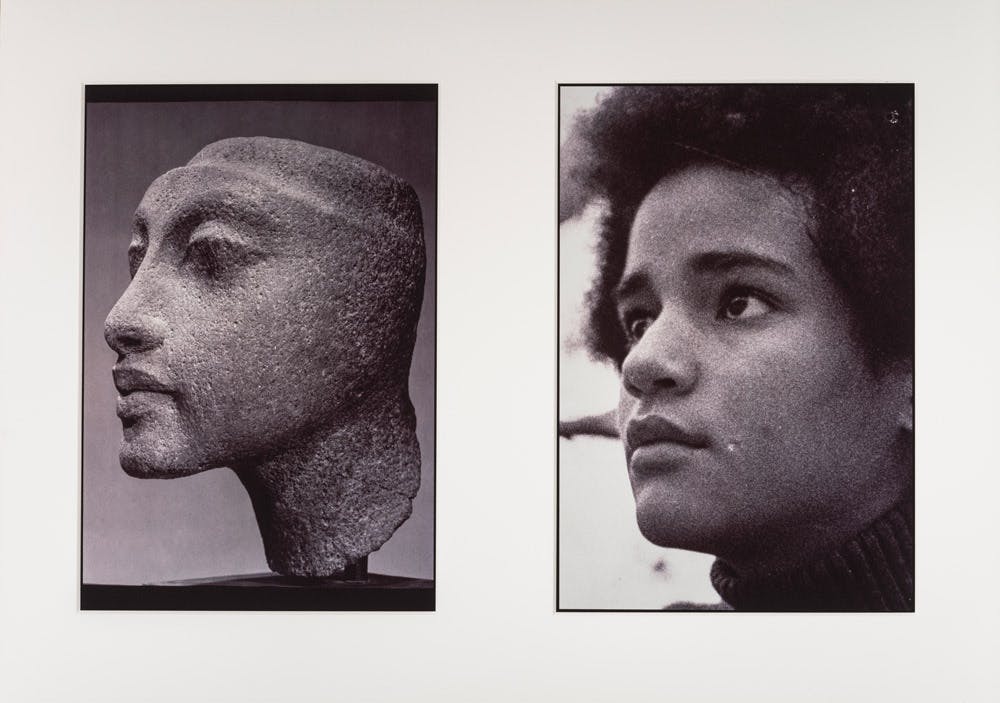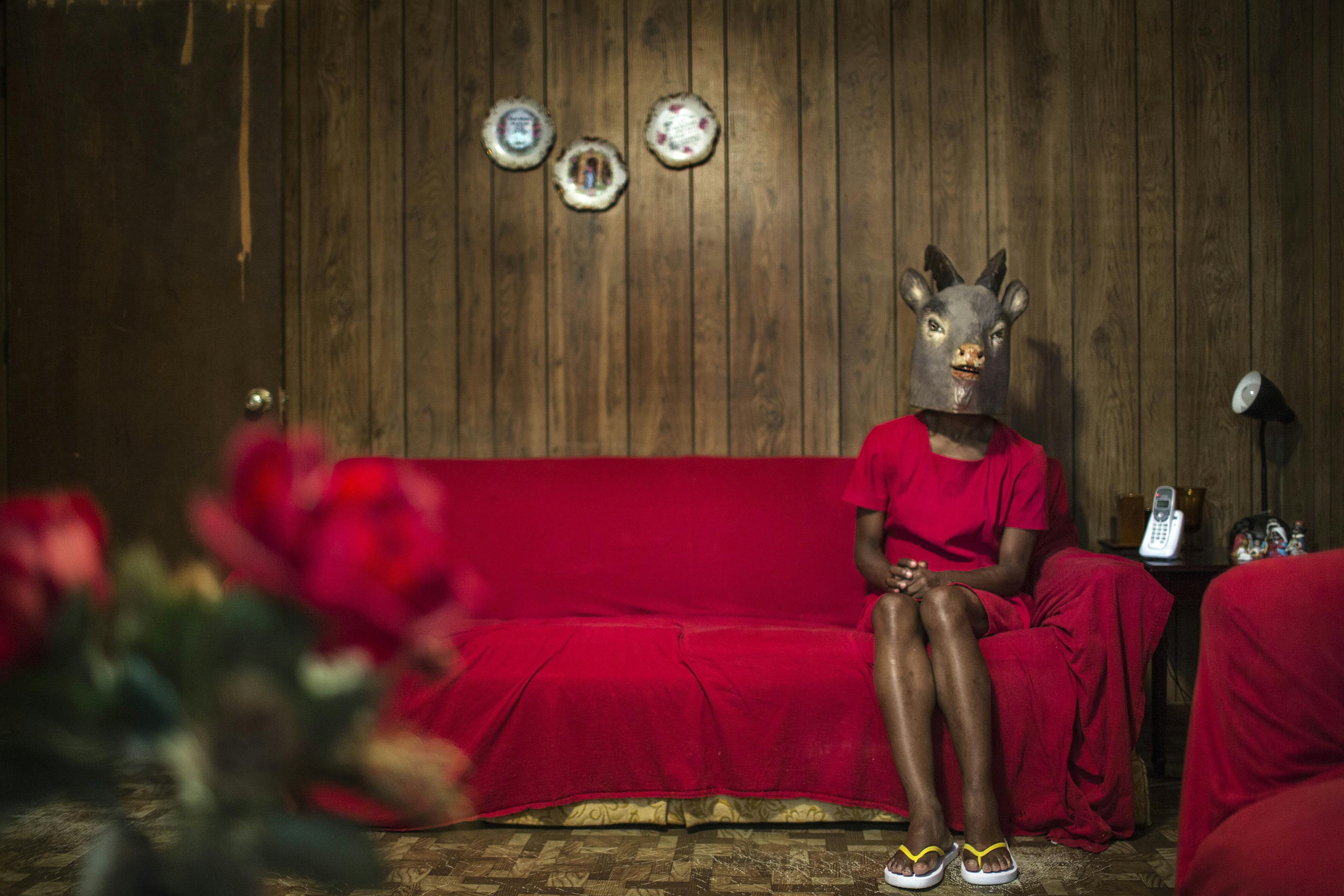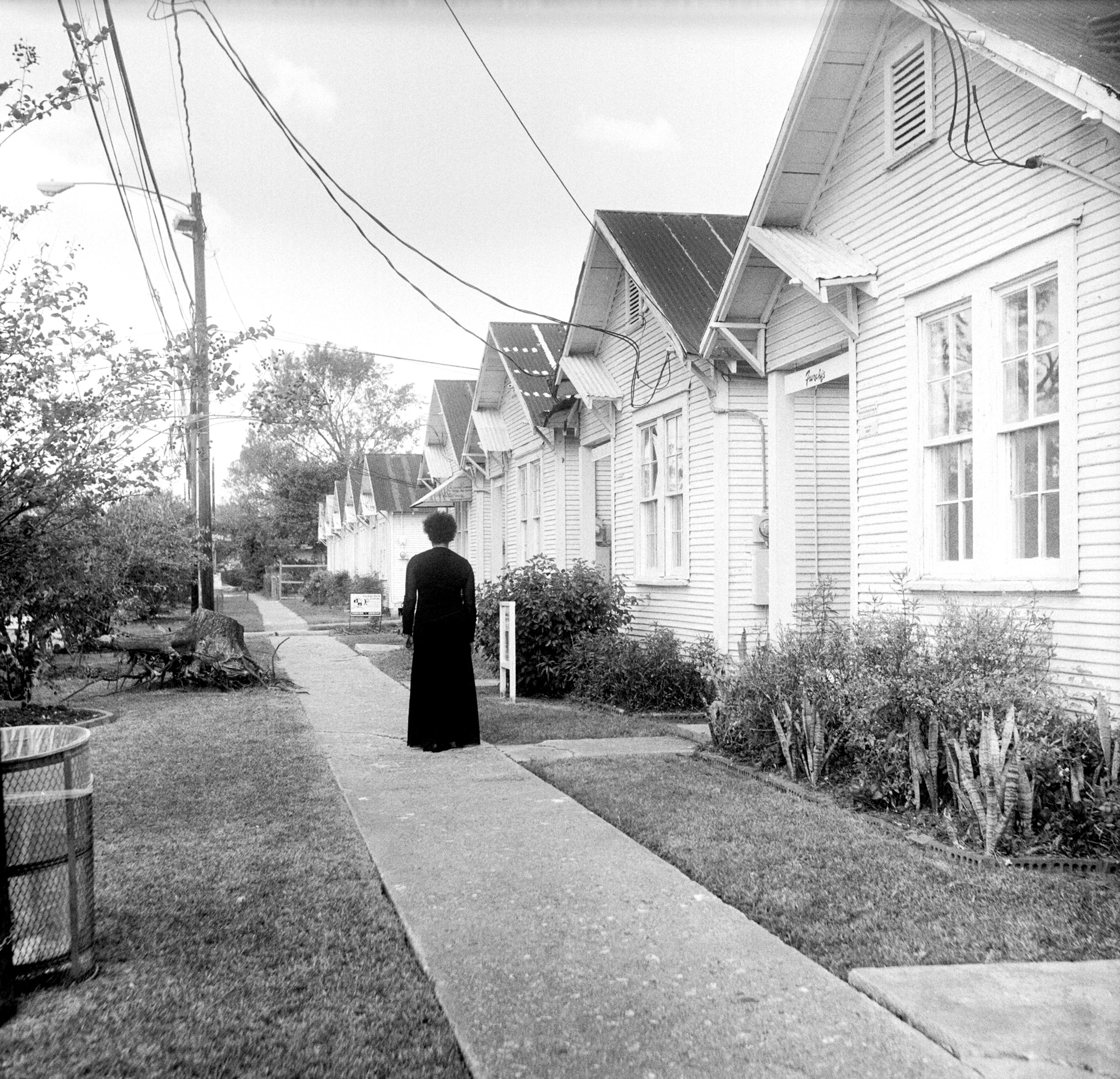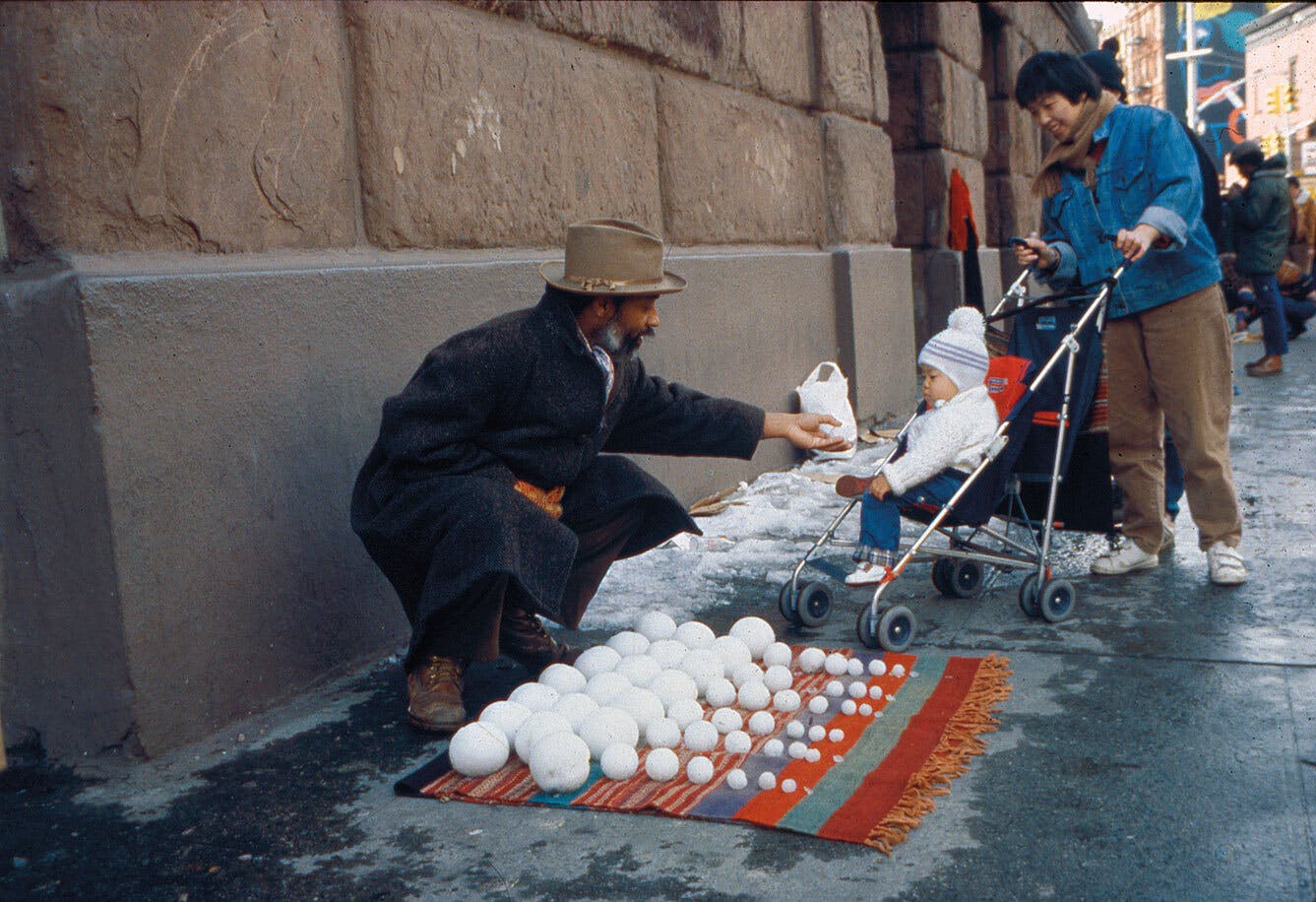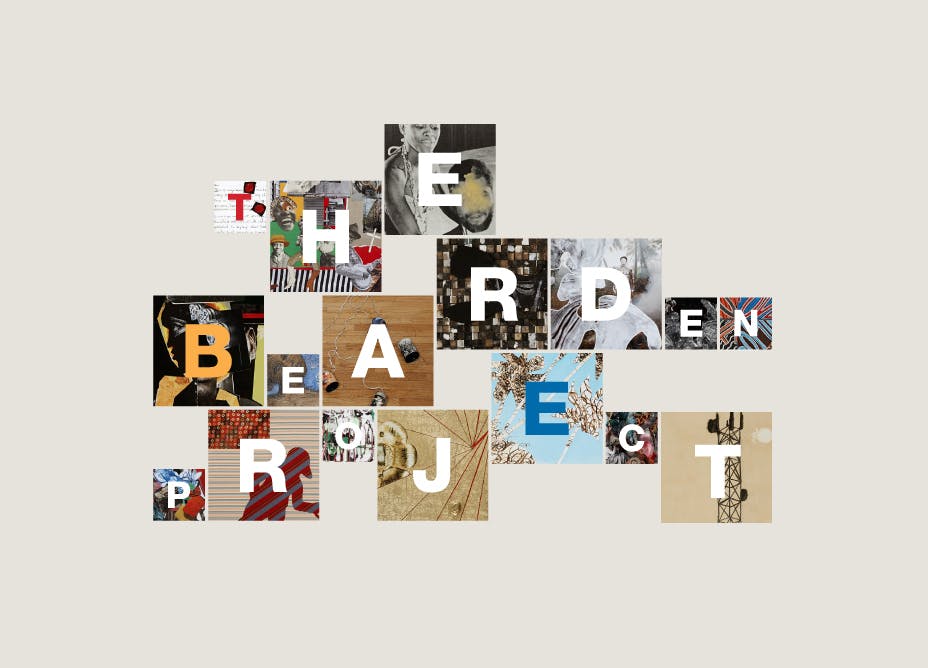Carrie Mae Weems
(b. 1953)Through photography, Carrie Mae Weems deconstructs racial and gender stereotypes, explores the relationship between power and aesthetics, and mixes autobiography with collective experience.
Biography
Carrie Mae Weems’ multidisciplinary practice centers on the interiority of her subjects and used photography as a tool to depict marginalized subjects and undermine systems of power.
Born and raised in Portland, Oregon, Weems joined an experimental dance workshop in San Francisco at age seventeen and, on her twenty-first birthday, received a camera as a gift from her then-boyfriend. A copy of The Black Photographers Annual inspired her to become a photographer and introduced her to the work of artists like Roy DeCarava and Ming Smith. In 1976, she moved to New York, where she took photography classes with Dawoud Bey at the Studio Museum and found a community in the Kamoinge Workshop, a group of Black photographers.
In the late 1980s, while teaching at Hampshire College in Massachusetts, she began to produce a body of work that specifically sought to remedy the historical lack of representation of Black women. Since then, her multidisciplinary practice has centered on the interiority of her subjects and used photography as a tool to depict marginalized subjects and undermine systems of power. Her works include staged scenes exploring Black women in a kitchen, appropriated images of enslaved African Americans reframed with texts addressing power dynamics, and photographic ruminations on museums and their relationship to artistry, agency, and access.
Weems earned a BFA from CalArts and MFA from the University of California, San Diego. She also studied in the Folklore graduate program at the University of California, Berkeley. She has received numerous awards including the National Endowment for the Arts Fellowship (1993); Rome Prize (2005–06); and a MacArthur Fellowship (2013). The Studio Museum has presented Weems’s work in numerous exhibitions, including African Queen (2005); Carrie Mae Weems: The Museum Series (2014); and Regarding the Figure (2017).
Exhibitions and Events
Carrie Mae Weems
(b. 1953)Through photography, Carrie Mae Weems deconstructs racial and gender stereotypes, explores the relationship between power and aesthetics, and mixes autobiography with collective experience.
Untitled, 2006
Biography
Carrie Mae Weems’ multidisciplinary practice centers on the interiority of her subjects and used photography as a tool to depict marginalized subjects and undermine systems of power.
Born and raised in Portland, Oregon, Weems joined an experimental dance workshop in San Francisco at age seventeen and, on her twenty-first birthday, received a camera as a gift from her then-boyfriend. A copy of The Black Photographers Annual inspired her to become a photographer and introduced her to the work of artists like Roy DeCarava and Ming Smith. In 1976, she moved to New York, where she took photography classes with Dawoud Bey at the Studio Museum and found a community in the Kamoinge Workshop, a group of Black photographers.
In the late 1980s, while teaching at Hampshire College in Massachusetts, she began to produce a body of work that specifically sought to remedy the historical lack of representation of Black women. Since then, her multidisciplinary practice has centered on the interiority of her subjects and used photography as a tool to depict marginalized subjects and undermine systems of power. Her works include staged scenes exploring Black women in a kitchen, appropriated images of enslaved African Americans reframed with texts addressing power dynamics, and photographic ruminations on museums and their relationship to artistry, agency, and access.
Weems earned a BFA from CalArts and MFA from the University of California, San Diego. She also studied in the Folklore graduate program at the University of California, Berkeley. She has received numerous awards including the National Endowment for the Arts Fellowship (1993); Rome Prize (2005–06); and a MacArthur Fellowship (2013). The Studio Museum has presented Weems’s work in numerous exhibitions, including African Queen (2005); Carrie Mae Weems: The Museum Series (2014); and Regarding the Figure (2017).





